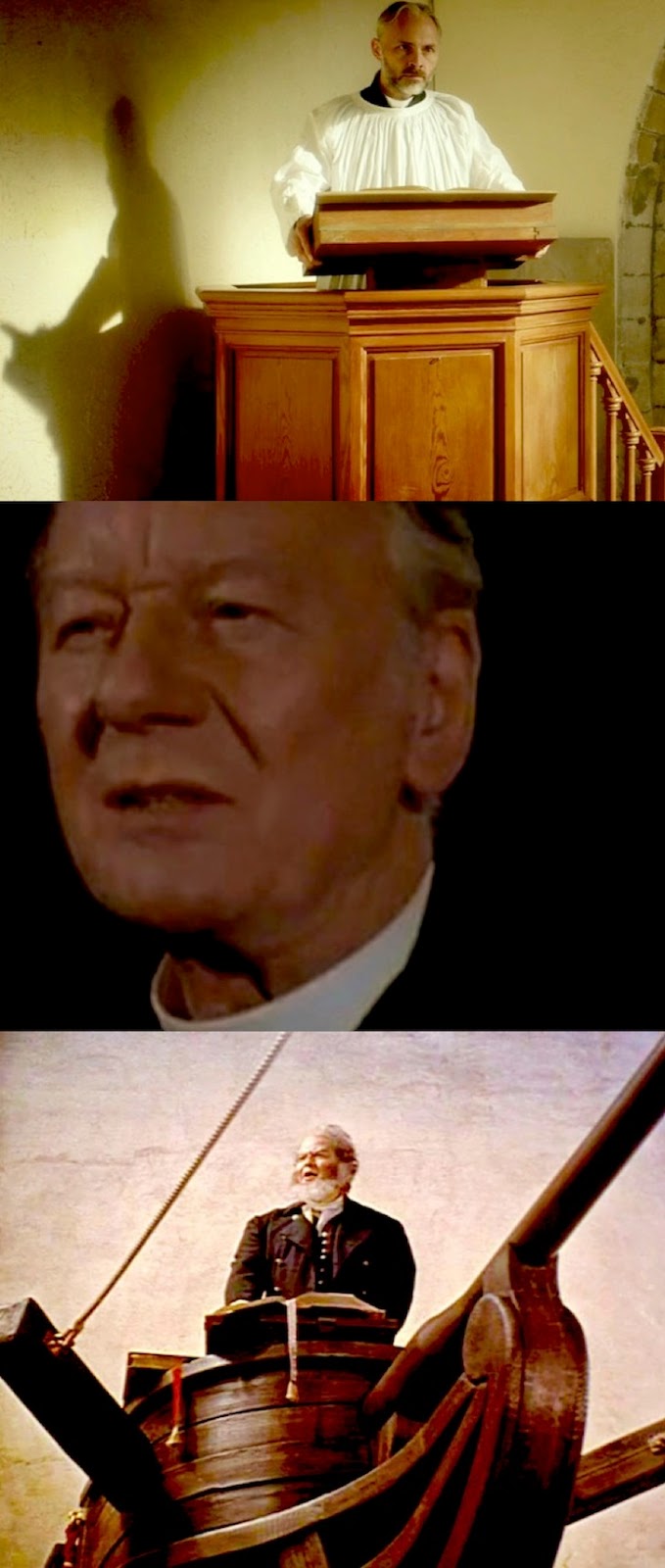 |
| Sand, surf and fun in the sun await this trio of MILF Holocaust survivors. |
To Life (aka À la vie) (2014)
Dir. Jean-Jacques Zilbermann
Scr. Zilbermann, Danièle D'Antoni, Odile Barski
Starring: Julie Depardieu, Suzanne Clement, Johanna ter Steege,
Hippolyte Girardot, Mathias Mlekuz, Benjamin Wangermee
Review By Greg Klymkiw
I suspect I'm going to burn in hell for this, but about thirty minutes into the ludicrous post-holocaust melodrama À la vie, a most (shall we say?) unusual notion crept into my brain, thus making the entire turgid affair watchable without having to nail my feet to the floor. My thoughts began swirling with possibilities when it occurred to me that Three MILFs from Auschwitz might be the more appropriate title for this abomination and its tag-line could be something like: "Hot MILFs at the Beach! They've survived the Holocaust and now they're gonna: Live! Laugh! Cry! Most of all, though, these girls just wanna have fun!"
Ugh! That's really what the picture boils down to.
15 years after meeting, befriending and caring for each other in Auschwitz, three plucky MILFs: Helene from Paris (Julie Depardieu, yes, she's the daughter of Big Daddy Gerard Depardieu), Lily (Johanna her Steege) from Amsterdam and Montreal-based Rose (Suzanne Clement), get together for some sun, fun and frolics on the beaches of the northern French coast town Berck-sur-mer. (Uh, for the uninitiated a MILF is a "Mother I'd Like to Fuck" and the soon-to-be-utlized FILF is a "Father I'd Like to Fuck".)
 |
| "Mais oui, but I am a castrato, and you're not!" |
In a nutshell (so to speak), Helene has been married to a castrato for fifteen years. He can't get it up and is only able to provide kissing, cuddling and caressing. No matter. She loves him dearly. In spite of this undying love, Helene confides to her fellow MILF Holocaust survivors that this state of affairs has been depressing the living crap out of her, especially since she is still a virgin and longs for schwance instead of the (no-doubt) nimble digits drilling into her needy, greedy mutersheyd. Like some MILF Holocaust Survivor version of Porky's, the gals make it their business to get Helene laid.
As luck would have it, klafte-pronging is just around the corner. Jilted hubbie-to-never-be Raymond introduces the gals to the buff figure of Pierre (Benjamin Wangermee), proprietor of Club Mickey, the local beach day camp for kids. This 20-something God of Love turns out to be an Algerian orphan who lived in state care most of his life - it wasn't quite Auschwitz, but traumatic enough to give him some cred in the suffering sweepstakes.
Luckily, he's got a raging hard-on due to being a virgin and he's so smitten with virginal Helene that she is on the verge of getting some strokin' from a bonafide MILF lover.
 |
| A young, buff virgin Algerian orphan looking for MILF. |
Everything about the picture is by rote and nothing ever rings true - so much so, that one wonders why director Zilbermann even bothered. Ah, he bothered because this is A TRUE STORY, based upon his own mother and her two friends. "Based on" seems to be the operative phrase to apply here. This is clearly a fictionalized version of the events. Though I've not seen it, Zilbermann has already made a documentary about his mom called Irene and Her Sisters. As it deals with the real subjects, I suspect it's not as ludicrously dappled in the perverse fluorescent colour scheme he employs to capture this empty fictional rendering.
In addition to the dreadful script, lacking as it is in genuine shadings of character, complexity and genuine emotion, the production design goes out of its way to be as accurate as possible in capturing period detail, but nothing ever seems to be "lived in". One of the more egregious elements soiling the picture is the jauntily horrendous ooh-la-la score which makes the film far too similar to a horrendous Claude Lelouch affair with music (if one can call it that) by the (mostly) insufferable accordionist Francis Lai.
About the only positive note is that the performance of Depardieu is extraordinary enough to evoke a genuine tear or two. One scene where she first discovers that one of her friends in Auschwitz is not dead is pretty extraordinary. Sadly, she struggles with attempting to find a character amidst the film's dross.
 |
| MILFs have secrets. Whaddya say they're gonna share a few? |
"But it's a true story," you say.
I say, "So what?" If a movie can't make itself truthful, then it betrays all tenets of good storytelling.
The most disappointing aspect of the film is dashed when the MILFS declare they will meet regularly every year at the same resort. Damn! There goes the potential for a Bob Hope and Bing Crosby "on the road" franchise (albeit with MILF Holocaust survivors, 'natch). All through this wretched excuse for a movie, I kept imagining different locales for our girls to cavort about in endless sequels. Disappointingly we'll never get to see what shenanigans these wacky MILFs from Auschwitz could have had in Bali, Waikiki and Morocco. The list is endless, but merely relegated to my feverish imagination.
THE FILM CORNER RATING: * One-Star
TO LIFE (À la vie) is an Unobstructed View release which opens May 20 in Canada.








